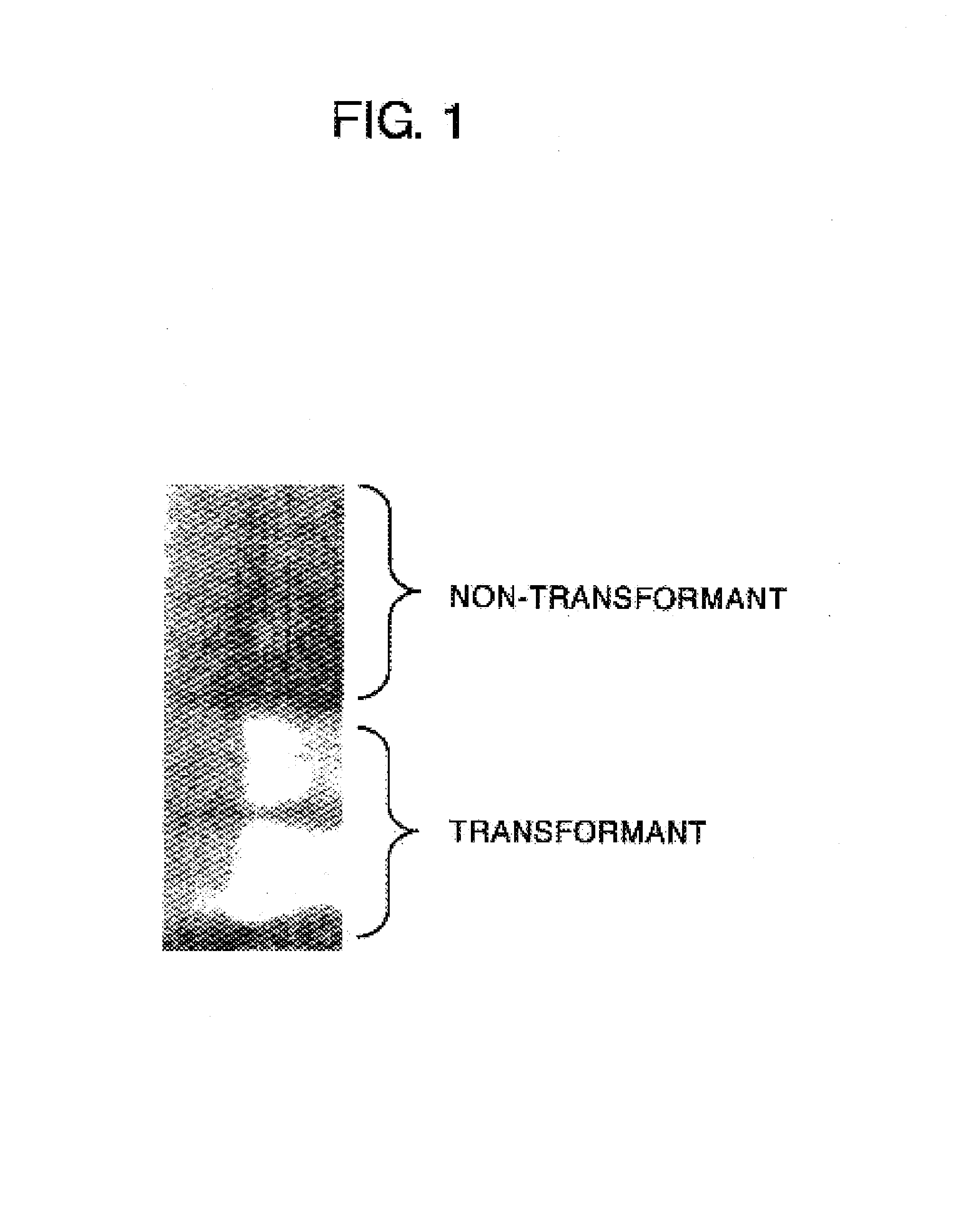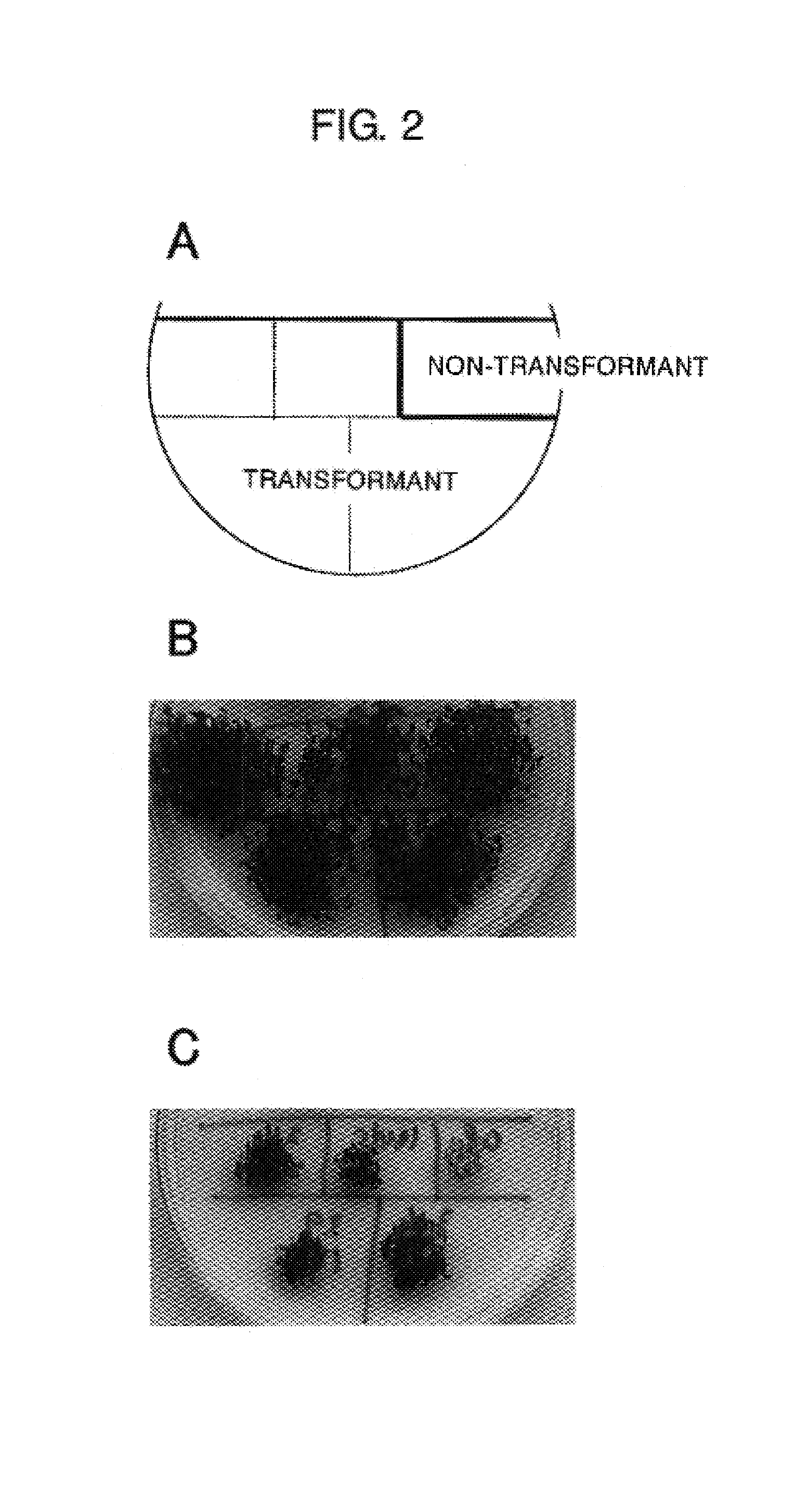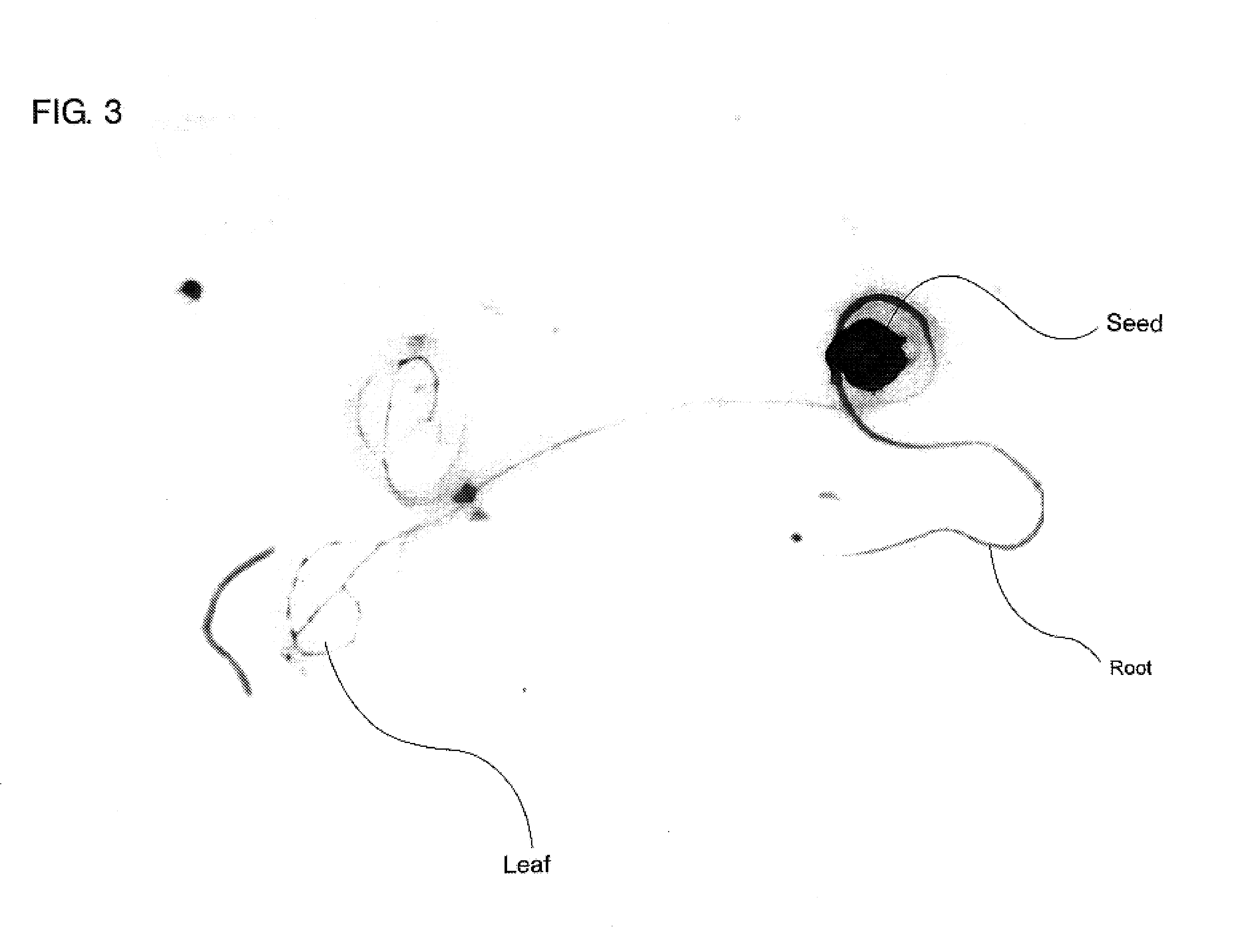Paraquat resistance gene and a vascular tissue-and trichome-specific promoter
a technology of paraquat resistance and promoter, which is applied in the field of paraquat resistance gene and vascular tissueand trichome specific promoter, can solve problems such as cell death
- Summary
- Abstract
- Description
- Claims
- Application Information
AI Technical Summary
Benefits of technology
Problems solved by technology
Method used
Image
Examples
example 1
Isolation of Paraquat Resistance Gene
[0119]In this example, Weigel T-DNA lines acquired from Nottingham Arabidopsis Stock Center (School of Biosciences, University of Nottingham, Sutton Bonington Campus, Loughborough, LE12 5RD, United Kingdom) were used as activation tag lines of Arabidopsis thaliana.
[0120](1) Screening of Individuals Capable of Growing in Paraquat-containing Medium Using Activation-tagged Lines of Arabidopsis thaliana (Weigel T-DNA Lines)
[0121]Seeds of Weigel T-DNA lines were sterilely inoculated in ½ MS agar (1%) culture medium (2.3 g / l of Murashige and Skoog Plant Salt Mixture (manufactured by Wako Pure Chemical Industries Ltd.), 1.5 mg / l of thiamine hydrochloride, 2.5 mg / l of nicotinic acid, 0.25 mg / l of pyridoxine hydrochloride, 1.5% of sucrose, 1% of agar) containing 3 μM of paraquat (methyl viologen, manufactured by Sigma Chemical Co.), and cultured at 22° C. under irradiation of light of 60 μE / m2 / s (cycle of 16 hrs photoperiod / 8 hrs dark period). Approximat...
example 2
Search for AtMVR Homologous Gene with Respect to AtMVR Gene
[0143]The search was made on databases having the entire nucleotide sequence of Arabidopsis thaliana based on the nucleotide sequence of the AtMVR gene and found that in addition to the nucleotide sequence of the AtMVR gene there are 13 AtMVR homologous genes on the Arabidopsis thaliana genome.
[0144]The respective AtMVR homologous genes were designated as AtMVR3-1 to AtMVR3-13. The nucleotide sequence of each of the AtMVR homologous genes and the putative amino acid sequence encoded by the relevant AtMVR homologous gene are shown by the SEQ ID NOs. listed in Table 9 below. Table 9 also lists the results of homology analysis between the AtMVR gene and each AtMVR homologous gene. The homology analysis was conducted using BLAST P at the amino acid level. The term “Identities” refers to 100% correspondence in terms of amino acids. Amino acids may be classified based on the chemical properties of their side chains. In the BLOSUM6...
example 3
Construction of AtMVR Expression Vector for Plant and Production of AtMVR Transgenic Plant
[0147]The transformation techniques applied herein were in accordance with a vector system described by Pellegrineschi et al. (Biochemical Society Transitions 23, 247-250, 1995) based on the Agrobacterium gene transport system outlined by Hinchee et al. (Plant Cell and Tissue Culture, pp. 231-270, Eds. I. K. Vasil, T. A Thorpe, Kluwer Academic Publisher, 1994).
(1) Construction of AtMVR Expression Vector for Plant
[0148]The AtMVR gene sequence was excised from pAtMVR using SacI / SacII and subcloned into pBlueScript (STRATAGENE). Subsequently, a fragment containing the AtMVR gene sequence was cleaved with XbaI / SacI and introduced at XbaI / SacI site that is present downstream of the CaMV 35S promoter of pBI121 (manufactured by Clontech). The resulting vector was used below as an AtMVR expression vector for plant.
(2) Production of AtMVR Transgenic Plant
[0149]The AtMVR expression vector for plant produ...
PUM
| Property | Measurement | Unit |
|---|---|---|
| voltage | aaaaa | aaaaa |
| distance | aaaaa | aaaaa |
| pressure | aaaaa | aaaaa |
Abstract
Description
Claims
Application Information
 Login to View More
Login to View More - R&D
- Intellectual Property
- Life Sciences
- Materials
- Tech Scout
- Unparalleled Data Quality
- Higher Quality Content
- 60% Fewer Hallucinations
Browse by: Latest US Patents, China's latest patents, Technical Efficacy Thesaurus, Application Domain, Technology Topic, Popular Technical Reports.
© 2025 PatSnap. All rights reserved.Legal|Privacy policy|Modern Slavery Act Transparency Statement|Sitemap|About US| Contact US: help@patsnap.com



